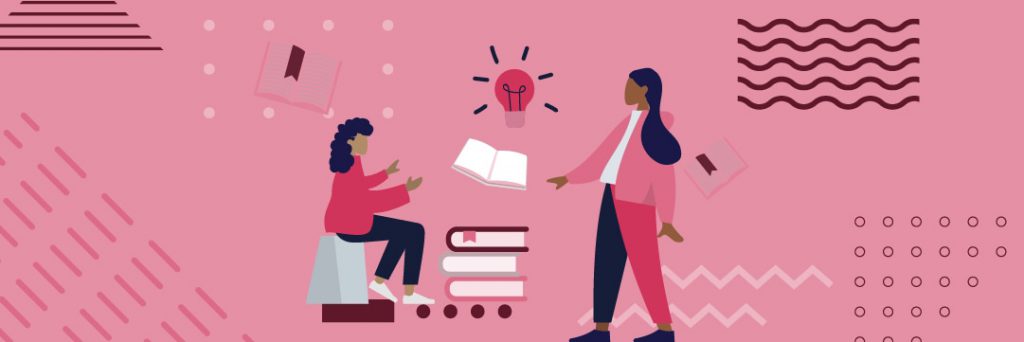Linguistics – is it something many of us think about on a regular basis? Us nerds, sure; the rest of society, maybe not so much. But here are some of the best books on linguistics to take you on a journey of this amazing field, whether you’re a nerd or not.
What is Linguistics?
Before we dive into the books, let’s talk for a minute about linguistics. Is it the study of language, the acquisition, how language transpires over the years? Yes, it is. And according to The Linguistic Society of America:
In a nutshell: Linguistics is the scientific study of language. Linguists apply the scientific method to conduct formal studies of speech sounds, grammatical structures, and meaning across the world’s 6,000+ languages.
The ability to communicate through language is what makes us human. Linguistics covers all of that, from slang to language development to speech issues to translation. We speak differently when we talk to our friends than our parents than our teachers. This is linguistics. The origin of words, linguistics. Language domain, multilingualism, and the development of languages – it’s all linguistics.
This is a broad category and covers academia, writing, science and technology, health, and medicine, the list is long. People study it for a lifelong profession, for a hobby, and for fun. A list from The Linguistic Society shares a number of professions in this field, some may surprise you from historians to computer coders to language documenters. This also falls into translation and transcribing.
But with all of that being said, we know you’re ready to get on to our books.
The Best Books on Linguistics
We are going to try to share a wide range of categories here. Not only to show the vastness of linguistics, but also to help you find a category that really speaks to you. So, check out our picks, and while you do, think about language, the finesse of it, the gift it is, and all the ways we can use it.
Noam Chomsky On Nature and Language
We’d be amiss to not include at least one book by Noam Chomsky, the famed American linguist, and prolific author. Ereads tell us that his work from the 1950s until today have worked wonders for and have revolutionized linguistics. Noam treats the idea of language as something that is idiosyncratic for mankind, a biologically-based cognitive capacity.
On Nature and Language is a collection of essays that offers a unique introduction to the minimalist approach to linguistics, which views language as optimally enabling the brain to express thought. Whether your interests lie in language, communication, society, politics, or perhaps some combination, this book is a must-read to understand the need for clear communication and language.
David Crystal How Language Works
David Crystal is a British linguist with a lengthy list of books in his name and a strong mark in the world of linguistics. His wit and easy tone make his work easy to read and easy to understand. He also has a number of “pop linguistic” books that are certainly worth a read, like A Little Book of Language, which is called a lively journey through the story of language.
In How Language Works: How Babies Babble, Words Change Meaning, and Languages Live or Die, you’ll read about things like the origins of human language, how children acquire language, rude versus polite words, how language relates to social status, and much more. Not only is this a beautiful book, but it’s short chapters could all stand alone. They impart lessons, anecdotes, and examples all about different aspects of language and cover topics from the broad, big ones to the small, detailed ones. It’s a must read for anyone interested in any area of language.
David Shariatmadari Don’t Believe a Word
David Shariatmadari is a linguist and writer and editor at the Guardian. He studied linguistics at Cambridge University and the School of Oriental and African Studies in London.
Don’t Believe A Word is a current, thought-provoking read on the topic of linguistics. It makes our best books on linguistics list because of its myth-debunking take on the field. A New York Times review shares that In providing the reader a foundation in rudimentary linguistics and its history, Shariatmadari is perhaps prompting — even inducting — us into thinking through such issues ourselves. What’s better than a book that makes you think?
Katherine Kinzler How You Say It
Katherine Kinzler, PhD, is a professor of psychology at the University of Chicago with degrees from Yale and Harvard. Recently, she earned the title of “Young Scientist” by the World Economic Forum. Her contributions to the world of linguistics are beyond noteworthy.
Her book, How You Say It, shares how our speaking styles attract social assumptions. Can we change this? Can we change how we speak or what we learned? Not only is this an interesting and informative read, but timely and evocative in the current times we are experiencing.
Linguistics has a strong base in childhood, and to see how our acquisition of language affects our entire life is eye-opening. Can people change their way of speaking? Will certain words or phrases give us away? And why do people change their original way of speech? There’s so much to think about in this area of linguistics. This book may not answer all of the questions, but it will sure provoke some.
We love this about Katherine Kinzler:
Katherine Kinzler is a phenomenon—one of the most brilliant young psychologists of her generation. She is a clear and lucid writer, a brave and creative scholar, and her discoveries about how language shapes the social world are truly groundbreaking.” —Paul Bloom, author of Against Empathy and Just Babies
John McWhorter The Power of Babel: A Natural History of Language
John McWhorter, an American linguist, is a linguistics professor at Columbia University and host of the podcast, Lexicon Valley. He is also a contributing writer to The Atlantic.
His book, The Power of Babel: A Natural History of Language, is often found on lists of the best books on linguistics, as it should be. McWhorter describes how language is a living dynamic entity, not a stagnant, unchanging one. For those who want to disagree with this, take a look at words like “peoplekind,” “zhuzh,” and the one we can’t leave out, “physical distance.”

Honorable Mention Best Books on Linguistics
You may not find these books on the recommended reading lists the others may be on, but you can have a little fun and learn while you’re doing it. Take a look at these books that made our honorable mention list.
Dan Jurafsky The Language of Food: A Linguist Reads the Menu
The Language of Food: A Linguist Reads the Menu shares great insight in the world of linguistics. For instance, we eat toast for breakfast and toast to our friends in the evening. Hmmmm….. And what about words like macaroon, macaron, and macaroni? Who hasn’t always wondered about that! From words on the back of a bag of chips to the descriptions from a restaurant reviewer, Jurafsky uses his keen linguistical insight to write an entertaining and eye-opening read.
Gretchen McCulloch Because Internet: Understanding the New Rules of Language
Linguist Gretchen McCulloch hosts the enthusiastic podcast, Lingthusiasm, and writes the blog, All Things Linguistic. With her book, Because Internet: Understanding the New Rules of Language, she opens up the door to Internet language. How do we sign off on emails or punctuate a text message? Is the period there really kind of mean? Can you actually explain what a meme is and where it came from? If not, McCulloch can help get you through it.
A Little More on Linguistics
As we’ve mentioned, language is ever-evolving, and with things like technology, pandemics, and personal identity, we see new words blossom into society at a rate that may be hard to keep up with. We are seeing culturally appropriate and inappropriate words to use and how to change our language to be inclusive. We hear terms like people first and cancel culture. What do these mean and why are they important?
You’ve also got so many careers and professions that involve linguistics. From academia where it’s studied in its full-fledged glory to science, communications, culinary, and historical fields, linguistics is there. You’ll see linguists in fields of writing, translation, and transcription like our pros at Bunny Studio.
Choosing Your Book List
We hope we’ve helped you get a start on your booklist with some of the best books on linguistics. Once you get to reading and learning more about the field, you’ll discover specific areas you just can’t get enough of. From there, create your own book list. Here are a few suggestions to help create it:
- Start with one or two off of our list. From there, look to similar books or find a topic you like and go from there.
- Read more from the same author. If you fall in love with an author, read another of their books.
- Check out some university reading lists in their linguistic programs. You can find some great gems here that may otherwise be missed.
- Keep a “to read” list. Whether it’s on your notes app on your phone or a post-it by your bed, keep a list and add to it when you hear of a book you’d like to read.
- Check out some podcasts or read some blogs on linguistics. You can never get too much! Some podcasts to start with are Lingthusiasm, Lexicon Valley, and Word for Granted.
Summing Up Linguistics
Whether you are thinking of linguistics as a career or just want to embrace your natural love of the language, build your bookshelf. Fill it with books that you love, and then give some new ones a try. We know we love a good library. Share your book lists, read voraciously, and pay attention to what speaks to you. Who knows what fabulous fact or scrumptious word you may stumble upon.










